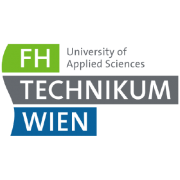Mondragon University’s collaborative research and knowledge transfer model
 Mondragon University’s collaborative research and knowledge transfer model is based on a structured approach to industry collaboration, building on the university’s position as a member of the Mondragon group of co-operatives. Mondragon University has established nearly twenty long term collaborative research and knowledge transfer contracts with industry partners. These contracts generate over 300 projects per year, and two-thirds of them are funded by industry. In terms of the income generated from applied research per academic staff member Mondragon University is the leading higher education institution in Spain.
Mondragon University’s collaborative research and knowledge transfer model is based on a structured approach to industry collaboration, building on the university’s position as a member of the Mondragon group of co-operatives. Mondragon University has established nearly twenty long term collaborative research and knowledge transfer contracts with industry partners. These contracts generate over 300 projects per year, and two-thirds of them are funded by industry. In terms of the income generated from applied research per academic staff member Mondragon University is the leading higher education institution in Spain.

Mondragon University’s collaborative research and knowledge transfer model evolves around a Permanent Committee, involving the university, company and other technology partners, which develops a four-year technology roadmap on future technology needs within a particular industry. This roadmap is used to identify a series of potential projects with budgets which can be offered to the industry partners. Specific projects are implemented according to the needs of the industry partners, each with their own characteristics and dynamics, through project teams involving academic staff, PhDs and students. The outputs from the projects are monitored and fed back into the permanent committee. The core members of these technology committees are from the Mondragon group, but also other local firms are involved from outside of the co-operative movement.
 Students play an important role in Mondragon University’s collaborative research and knowledge transfer. Mondragon has over 5000 students in professional training courses. All undergraduate and master students complete one year full-time industrial/research project; 80% of PhD students are funded by companies (e.g. industrial doctorates). Students complete also projects each semester through collaborative research and knowledge transfer projects. The results are positive: the Basque graduate tracking system shows that after 3.5 years of their graduation over 90% of the 2012 graduates were occupied (96% engineering, 93% business, 95% humanities/education), either as working or studying, and 24% were employed by the firm where they completed the final year project. Graduate retention levels are high: over 90% of the graduates remain in the Basque Country.
Students play an important role in Mondragon University’s collaborative research and knowledge transfer. Mondragon has over 5000 students in professional training courses. All undergraduate and master students complete one year full-time industrial/research project; 80% of PhD students are funded by companies (e.g. industrial doctorates). Students complete also projects each semester through collaborative research and knowledge transfer projects. The results are positive: the Basque graduate tracking system shows that after 3.5 years of their graduation over 90% of the 2012 graduates were occupied (96% engineering, 93% business, 95% humanities/education), either as working or studying, and 24% were employed by the firm where they completed the final year project. Graduate retention levels are high: over 90% of the graduates remain in the Basque Country.
Additional information:
Estudio de Incorporacion a la Vida Laboral Promocion Universitaria de Grado de 2012, Lanbide 2016
University-Business Forum Reports for Basque Country 2016 (input and conference proceedings)





